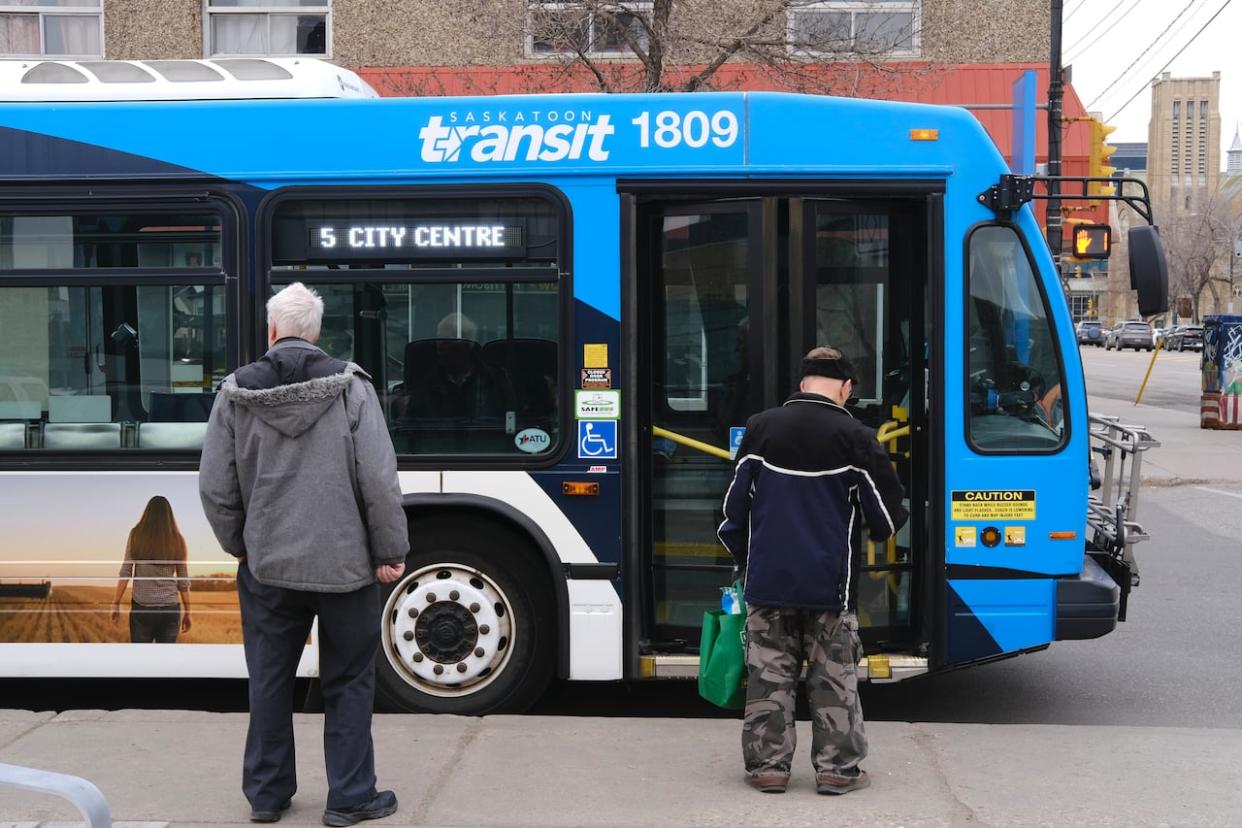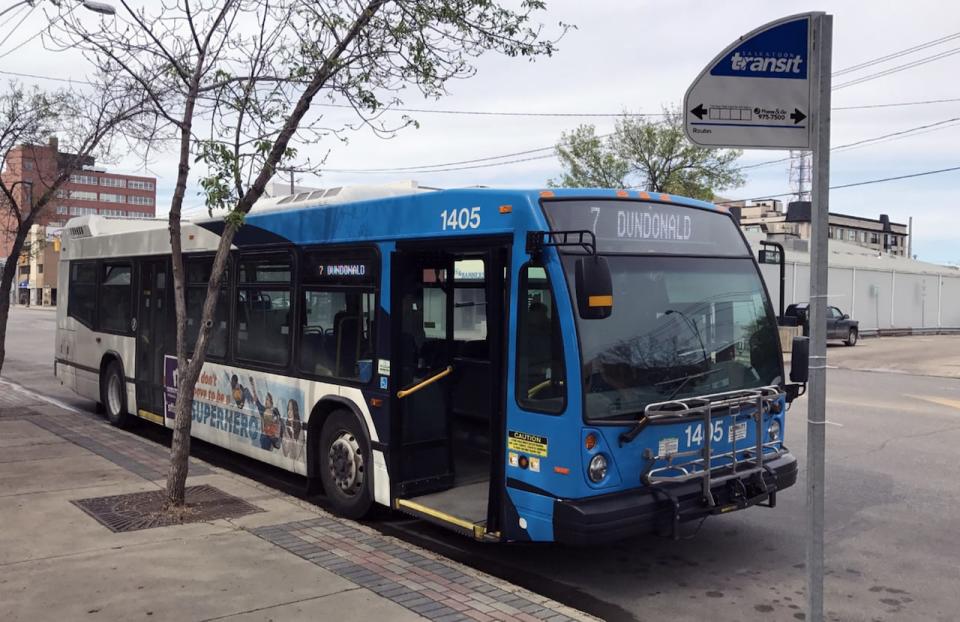Saskatoon transit drivers' union calls for better safety policies amid violence on buses

- Oops!Something went wrong.Please try again later.
Saskatoon transit drivers say they are subjected to a litany of abuse by their passengers, from fare-disputes to aggressive behaviour and even assault.
Darcy Pederson, president of the Amalgamated Transit Union Local 615, which represents transit drivers in Saskatoon, said drivers are scared to go to work due to alarming cases of violence on buses.
"They're getting kicked, punched, spat on, threatened and bear-sprayed," he told CBC's Saskatoon Morning host Candice Lipski Tuesday morning. "We've seen, in recent months, knives and guns on the buses as well."
Pederson said the attacks have been random and are becoming more violent — not only against transit operators but also against the riding public.
This year, Saskatoon bus drivers have reported 31 incidents where they have had negative interactions with passengers, according to the city. These include acts of aggression, verbal altercations, intoxication, assault and discharge of bodily fluids.
"Transit agencies just don't care about front-line workers, as it appears they believe that violence is an occupational hazard, which is far from the truth," Pederson told CBC in an earlier statement.

So far this year, Saskatoon bus drivers have reported more than 30 incidents involving passengers. (City of Saskatoon)
On Tuesday, Saskatoon Mayor Charlie Clark said he believes violent incidents on buses are linked to the city's toxic drug crisis.
"Saskatoon in many ways is a place that more and more people from across the province end up coming to because we have more services," he said. "It is overwhelming our systems."
Clark said the city needs more supportive housing to help people with complex needs.
"We really need help from the provincial and the federal government to be able to meet the needs of people who are struggling right now," he said.
He added that the city has increased patrolling efforts and is installing safety shields to protect bus drivers.
The city also aims to expand its community support officer (CSO) program on July 1, putting CSOs in targeted areas and on bus routes that see the most incidents.
Pederson said that's a start, but that the city needs to have zero tolerance for physical and verbal abuse of drivers.
"We need to make [drivers] aware of the situations that are taking place and provide some extra training, mental health and addiction-support training, and stronger enforcement of the Criminal Code," he said.
The City of Saskatoon said in a statement to CBC News that incidents on public transit are increasing all over Canada.
It said several initiatives have been introduced in the last 12 months to improve safety for employees and the public in transit spaces: increased supervision on streets, immediate investigation when an incident happens, expansion of patrolling locations, and regular meetings with the union to discuss safety concerns and to work on a solutions-based approach.
It added that Saskatoon Transit will participate in a national strategy co-ordinated by the Canadian Urban Transit Association to design a new training program to assist operators in difficult situations.

